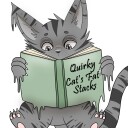
The year was 2014. We had cured cancer. We had beat the common cold. But in doing so we created something new, something terrible that no one could stop. The infection spread, virus blocks taking over bodies and minds with one, unstoppable command: FEED.Now, twenty years after the Rising, Georgia and Shaun Mason are on the trail of the biggest story of their lives-the dark conspiracy behind the infected. The truth will out, even if it kills them.
FEED is the electrifying and critically acclaimed novel of a world a half-step from our own---a novel of geeks, zombies, politics and social media.
Newsflesh FeedDeadlineBlackout
For more from Mira Grant, check out:
ParasitologyParasiteSymbiont Chimera
Newsflesh Short FictionApocalypse Scenario #683: The BoxCountdownSan Diego 2014: The Last Stand of the California BrowncoatsHow Green This Land, How Blue This SeaThe Day the Dead Came to Show and TellPlease Do Not Taunt the Octopus
- ISBN10 1306873126
- ISBN13 9781306873123
- Publish Date 1 January 2010
- Publish Status Active
- Out of Print 19 May 2015
- Publish Country US
- Imprint Orbit
- Format eBook
- Language English
Reviews

Written on Sep 8, 2019

Quirky Cat
Written on Feb 10, 2019
Like a lot of Mira Grant’s works, this series has a lot of short stories to accompany it. So keep an eye out for them. I’ve also been told that Fed is a short story designed to change the ending of Feed. Not having read that one yet though, I honestly can’t tell you how the ending is changed (more on that later).
Feed follows Georgia Mason and her brother, Shaun, as they tackle a world full of zombies. They were born after the zombie apocalypse, and all things considered, it didn’t go as poorly as we expected. Yes, a lot of people died. But a lot of them survived. Granted, they’re still dealing with zombies, so there’s always a chance that could change…
There are two things that make Newsflesh stand out amongst the rest of the zombie novels out there. For one thing, as mentioned above, it starts after the first wave of zombies hit. For another, a lot of the focus is actually on how the media evolved after the outbreak. And thus this is just as much a story about media and reporters as it is a zombie story. Not what you’d expect, right?
Warnings: Man oh man does this novel need a warning label. I’ll be honest with you here if I didn’t love Mira Grant so much, and if I wasn’t so incredibly curious about the world she created here, I would have put this novel down. There are a lot of animal deaths. None of them are actually shown as they happen, but there are some pretty graphic descriptions of how the bodies are found. It gets bad. Really bad. Like other zombie novels, there are also a lot of people that die in this novel. A couple of them are fairly graphic, but I mostly mean that in the emotional sense. I almost added thankfully after that, but I think I would have preferred the gore, in a way. There are also graphic details of how the scene of a zombie outbreak is cleaned up. It may not be something you want to think about too much.
Feed was amazing, but it honestly messed me up something good too. The emotional hit I took because of this novel does show how invested I became during the course of reading it, so I’d like to take that as a good sign.
To say that this novel is not one you want to read in public would be an understatement. I was ugly crying at two separate points in this novel and had tears welling up at a couple of others. It did a perfect job of hitting me in all of the feels, and then some.
Now, maybe I’m just a sap. Okay, I am a sap. At least one of those ugly cry scenes was because of animal deaths – animals that we had never met during the course of this novel, and yet I was still crying for. There was one scene that I found to be really rough. I think any animal lover would, truth be told. So I’m bringing it up again to warn everyone out there.
Having said that, I finished this book. I know, without a shadow of a doubt, that I would have walked away had this been almost any other novel. So I’d like to think the fact that I finished it carries some weight. I was just too fascinated with the story to do anything but keep reading.
Okay, now that I’ve finished talking about how messed up this novel made me, let’s move onto the rest of the review, sound good?
I absolutely loved that this was a completely different zombie novel from anything else I’ve read. I love that it starts after the first outbreak. I love that it has a focus on the media. I love that society, on the whole, survived the outbreak. I love how much thought went into the science behind the creation of zombies. And last, I really did love the characters in this novel.
Having the novel start at a different point than most other zombie series was a good choice. It immediately identified itself as being something different, with just that one simple change. It also allowed the main perspective, Georgia, to have a lot of knowledge about zombies. After all, she’s never known a world without them. This let us immediately learn about the zombie virus – no theories, no guessing. Just facts.
Speaking of, I wonder if that was intentional? Considering how much Georgia loved facts and the truth. It feels intentional, so I’m going to go with it. That was another part I loved about this book. It wasn’t just about surviving zombies. It was about how the people of this world have changed. How they’ve become more reliant on the internet for news and interactions, and how their ways of getting said news have changed as well. It’s interesting to think that the news would shift so dramatically, but I also can’t argue with the logic.
I really loved Georgia and Shaun as well. I’ll confess that Shaun took a lot longer to grow on me than Georgia. But on the flipside, there were a few secondary characters that I became irrationally attached to from their first introduction. Go figure. It seemed like everybody had a unique personality, and better yet, they were human. They had hopes, dreams, and even flaws. It made them so much more relatable. Except for maybe Shaun – I just don’t ever see myself wanting to poke a zombie with a stick.
I don’t want to talk about the ending much, for obvious reasons. I will say that while I had a theory about who was behind all of this, I honestly had zero idea of what was going to happen in the end. I certainly wasn’t prepared for that revelation. Maybe I should have been.
On that note, I don’t know what will be changed in Fed. I’m conflicted because part of me wants to read it right away and see what’s different. The rest of me desperately needs some time to recover from what happened in this novel. The animal deaths alone are enough to put me off of almost any series, so I’ll confess that I’m a bit conflicted about continuing this series. I will probably cave at some point, but will likely give myself a lot of time between novels. If anybody would like to reach out and let me know what to expect from the later novels and short stories, I certainly wouldn’t mind!
For more reviews, check out Quirky Cat's Fat Stacks

Amber (The Literary Phoenix)
Written on Aug 18, 2018
This book absolutely floored me. Feed was on my TBR for a long time, and traditionally speaking, I don't go in for zombie books. But Feed really isn't a "zombie book", per se. It's a book about a political campaign and a conspiracy in a world after the zombie apocalypse. So anyone going into this book looking for a heavy reliance on the walking dead will be disappointed. Zombies play an important part, but zombies aren't the story.
We follow three strong characters through the story who are all about getting the news on a presidential hopeful, and insisting on telling the truth. There's assassination attempts and zombie outbreaks and scares as the Kellis-Amberlee virus takes members of the caravan. The research is great here - the science moves well and feels possible. The way the world has rebuilt itself - in organized quarantine rather than gore and survival - also feels real. We look too often for chaos in zombie dystopias, but the calm organization in this one was a bit refreshing.
The ending was brilliantly written and made me really mad. I'll definitely be picking up the rest of the Newsflesh trilogy and more of Mira Grant's work. I'm impressed.
This book will appeal to fans of a more subtle zombie story, fans of books where the characters will go to whatever end to uncover the story, and fans of sibling stories.

Melanie
Written on Oct 24, 2015
Feed is another story that I picked up to stay with my horror theme for Halloween in October. It is also another great recommendation from TheGeekyBlogger. After I started listening to the first little bit, I started to wonder if it was really a horror story. Yes, it has zombies, but it didn’t have that normal “horror” feel to it. I don’t know quite how to describe it. It was too “fun”, but yet not. The horror aspects to come into play eventually, but I’ll just leave it as it is not like any other book I’ve ever read.
This isn’t like any other zombie world I’ve visited. I say visited because I haven’t read a lot of zombie books, but I have watched a lot of zombie movies. Most zombie stories have many zombies shambling around, no government, no technology, everything is pretty much post apocalyptic. This is nothing like that. First, this takes place about 20 years since the breakout started. They do a lot of blood test to get in buildings to ensure you’re not infected. You even have to have blood tests to get out of your car for the same reason. Some areas, like national parks, are restricted because of zombies. Oh, and most animals can contract the disease if they weigh over 40 pounds.
George and Shaun, they are where the story is the real winner. They are both great characters. They are brother and sister. They were orphaned and adopted by parents who lost their child during the original outbreak, aka The Raising. They have grown up and are now bloggers who go out and are telling the news. The general news media isn’t trusted because they tried to cover up the original outbreak. So people have turned to bloggers to get their information. George, Shaun and their techy friend Buffy go on a political campaign for Senator Ryman, who is running for president.
Feed is a story that grabs you like a zombie and doesn’t let go. The wonderful characters combined with humor and the way the story is told just keeps you up to know what is going to happen next. It will make you laugh and it will make you cry. It kept me on my toes. I never knew what was going to happen next. I was completely surprised by some of the events that happened in the story. I can’t wait to see where this story goes next.
Narration
I haven’t listened to many books with multiple narrators and both of these narrators were new-to-me. This one did a great job with it, probably the best I’ve heard to date. Paula Christensen handles all the narration that is told from the female POVs. She also reads any blog posts that posted at the beginning of each chapter that are written by one of the girls. Jesse Bernstein handles all the chapters that are told from a male POV and any blog posts from one of the guys. Both narrators did a great job with male and female voices. Both had great pace and tone. They both really pulled me into the story and got me lost in what was going on and forgetting about the world around me.

Angie
Written on Jul 10, 2015
Feed is probably one of the more believable zombie apocalypse, dystopian societies that I've read about. Obviously, we did not cure cancer last year, but I can imagine how when combined the two cures could cause disastrous results. Those who were already dead, stayed dead. It was just those who contracted the cure viruses who turned at death. And we all know how contagious the common cold is, and the cure is an altered strain, so of course it gets out of hand. All of this plus fear makes for a very sticky situation when it comes to politics, and there are those who seek to take advantage of that fear to push their own agendas in the name of saving our nation. That's exactly what Georgia is out to uncover.
I did enjoy Feed. It's very different from all of the zombie books I've read before, mainly because it's not focused on the zombies. This is all about politics and journalism. Free speech and conspiracies! The zombies are essentially a pawn, rather than key players here. At times, I did get bored, especially when Georgia and Shaun were just going about reporting on the campaign. But once things started blowing up, and zombie horses were attacking, I got really into it. I also loved the inclusion of blog posts! That ending though? Geez. I really wasn't expecting that to happen.
Read more of my reviews at Pinkindle Reads & Reviews.

Jordon
Written on May 9, 2015

clementine
Written on Jan 14, 2015
-
Whew, I finally finished this book. I'm not sure why it took me so long to get through it (aside from the usual "real life came up"), but it did! A week compared to my usual 2-3 days is... a really long time.
So, negative points first. There was a lot of info dumping employed here, which made some sections pretty difficult to slog through. Like, sections that should have been exciting were punctuated with several pages of information. The information was all important, and it just showed Mira Grant's incredible attention to detail, but it wasn't delivered in the best way. For that reason, I really can't give it a full five stars, because it did make certain sections of the book PAINFUL and broke up an otherwise really awesome story. Pacing problems can kill your book, people!
Generally, though, I thought Feed was a very strong book. I don't devour zombie apoc literature at nearly the rate I do dystopian (although I suppose you could say that about just about any genre - my dystopian consumption rates are pretty incredible), so I don't consider myself particularly well-versed in the genre, but I do think it would be difficult to find a zombie novel that's as well thought out as Feed. The worldbuilding is incredible, and Mira Grant's extensive research really shows through in the thorough, believable Kellis-Amberlee virus and the way it's impacted the world in the year 2040.
The characterization was damn near perfect. Georgia was an excellent heroine - sometimes I feel like the whole "strong, sassy female" thing, while neat in theory, comes across as forced and archetypal (so, you know, not really any better than the "innocent, naive, pathetic girl" archetype), but Georgia was just plain awesome. I have to say, though, I think I liked Shaun best. The combination of Georgia's description of him and his own narration created a full picture of him, and man did I like that picture. I thought some of the characters were a bit too one-dimensional (the Mason parents, for example - I know we're told by their kids that they're awful attention whores, but I never fully got that vibe from their actions/words so I'd like to see more from them), but generally there was a really nice and diverse cast of characters. Steve in particular was quite awesome.
I loved that the zombies weren't exactly the main point of the book - in a lot of the zombie literature I've read, it's all about survival. While obviously that was a focus of Feed, I loved the fact that the zombie-infested world was really the well-integrated backdrop to a political thriller with three bloggers (! so awesome) navigating the murky waters of the upcoming presidential election.
I was expecting an exciting, well-developed plot out of Feed; what I was not expecting was how moved I was. The whole thing was pretty much a smart, sarcastic, generally fast-paced zombie thriller (which I loved!) up until Buffy's death, which was bad enough. That marked the point where things got real, and where it became clear to me that Grant was not opposed to killing off characters who she let us get attached to. What really came as a shock to me, and, I'm sure, everyone, was Georgia's death. I didn't believe it until it really happened. Grant did such a good job of setting it up so that you'd NEVER think it would happen, and although when she described the prick in her bicep, I knew in my heart it was over, it was really tough to believe. I think a lot of this is due to the first-person past-tense narration style, which would lead the vast majority of readers into a false sense of security, but - wow. It really happened. And the emotional aftermath from that made me feel a lot of things.
Now, I hate to say this because I'm one of those pretentious book purists who is very critical of movies based on books and anxious about them GETTING EVERYTHING WRONG, but I totally think Feed would make an excellent movie. It's smart, it's exciting, and its two main characters are intensely likeable and awesome. I would watch the hell out of it.

empressbrooke
Written on Apr 5, 2014
My main complaint is that I wasn't a huge fan of the author's writing style. Its tone felt like many of the Young Adult books I've read, and as such I had to keep reminding myself that the main characters were adults in their 20s rather than teens. The dialogue was campy and overwritten at times, and the characters are often "grinning" or "whooping" or otherwise just being loud. Because of that, I was a little surprised that it was nominated for a Hugo, but I suspect that everything I mentioned enjoying about the plot was behind that.

cornerfolds
Written on Aug 28, 2013
The writing in this book was painful at times, and extremely repetitive. The world building is force fed to the reader via Georgia rather than shown through events. I will say that the zombie concept that Grant has come up with seems entirely original and was interesting. But I will also say that again, we are force fed the zombie virus situation throughout the book. It seemed like every five minutes I was hearing about a blood test, which model it was, where the needles stuck, and about the blinking lights that finally settled on green. I get it! I got it after the first few pages, actually.
Another repetitive aspect that drove me crazy was Georgia's health issue - Retinal Kellis-Amberlee. Basically, the zombie virus concentrated in her eyes. We constantly hear about her sunglasses, how her eyes hurt in the light, her migraines, contacts, and how every time she enters a building she runs into problems with security. Once again, I got it after the first few times.
The characters in general just weren't very likeable to me. Georgia seemed kind of arrogant and goes out of her way NOT to fit in with everyone else. She constantly talks about her desire to tell the Truth (yes, with a "T") and nothing but the Truth. Though she associates herself with the "newsies" (a branch of bloggers who report only facts without opinion), every blog post we hear from her is nothing but opinion, even going so far as to state which candidate should win the presidential election.
Shaun just seemed like an idiot. If I had to hear about him "poking things with sticks" one more time, I was at risk of giving up altogether. But I pushed through. Shaun is what is called an Irwin - a blogger who goes out into dangerous areas to get footage of himself doing stupid things. Oh, and Irwins are named after Steve Irwin (there was even something about a Steve-o award), as if people in 2040 will remember who Steve Irwin was.
Buffy was another idiot, just for different reasons. I'm not really sure why they don't have books (Kindle, maybe?) in the year 2040, when they have earring cameras and hotels with private elevators, but for whatever reason, they rely on fictionals (bloggers who write fiction, shockingly) to get their fix. Buffy seems to whine and complain a lot throughout the book and is the ultimate demise of everyone.
I didn't love any of them. I actually thought they were all maybe 18 years old, only to find out from reviews that they were actually around 24. They were completely juvenile, unrealistically so. No one in real life makes a (supposedly) witty comment at the end of every sentence. And no one would call their brother an idiot when she thought he was about to die.
Speaking of brother/sister relationships, this one was a little weird. I love my brother and all, but I don't share a bed with him and I can stand to be away from him for more than five minutes. I've also never let my love for my brother interfere with my dating experience.
My last unfortunate comment is that I have never before read a book and not cared at all when a character died. I did not care in the least when characters in this book died. I think that fact alone speaks volumes about this book.
Notes on the Audiobook:
Audiobook narration is extremely hit or miss, and this one was a definite miss. Paula Christensen's voice was annoying, her voice rising at the end of each sentence, almost like a sports announcer. Jesse Bernstein's voice wasn't nearly as bad, but BOTH need to work on their British accents. I have never been to England, but I've had English friends and I watch TV - I could have done a better job. Paula's accent sounded like a strange combo of Australian and British, and Jesse's sounded like Samoan mixed with British and American. Both were really weird.
This review can also be found at Cornerfolds.com.

wyvernfriend
Written on Aug 7, 2012
Now I've read Seannan Maguire's blog over the years and enjoyed it, and read her October Daye books and enjoyed them too and Zombies are a major squick factor with me. They tend to give me nasty nightmares and have me almost running for the hills, but I had heard about this, and that it was good and I decided to try it, and left it on my TBR shelf for a while, picking it up and putting it down again. And then I had to take some time off sick, and there was some much-missing sun, so I decided that this was a good time to at least try. And it was a good read, I was totally sucked in and really enjoyed the story, it's compelling with twists that I really didn't expect and was quite shocked by. It left me wanting to read the next books immediately, which alas I can't do but seriously I will have to get them and read them.
It's a good read, forget that it's a zombie book, it's a good near-future science fiction series that left me wanting more.
